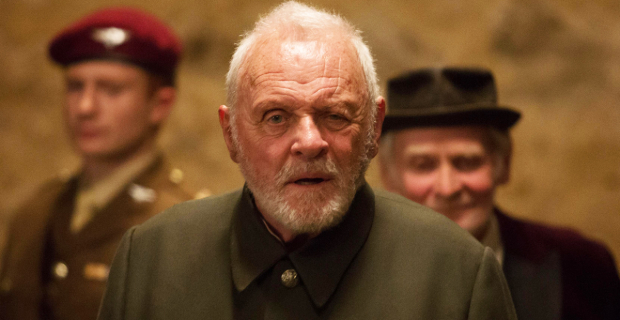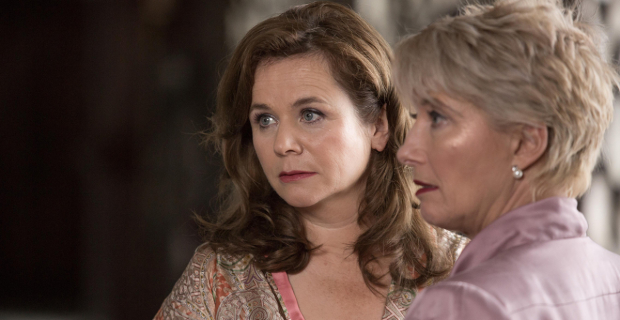BBC's King Lear shows that Shakespeare is there to be broken
Richard Eyre directs a new production of Shakespeare’s classic

© BBC
Seven and a half years ago, as plucky 16 year-old slap bang in the middle of the Midlands, I remember sitting up late and watching Patrick Stewart and Kate Fleetwood's Macbeth on BBC Four. My parents had gone to bed, my brother had gone to play the PS3 or something, but I was poised there, raptured. I can still recall Stewart's knife-clenching warrior emerging from a green-tinted mist, about to engage MacDuff in a fateful fight, or those spooky nurse witches hovering around operating tables.
But what I remember most of all were the questions that the production made me ask myself – did director Rupert Goold's decision to have the witches as nurses really work? What did it add to the production? Why did the totalitarian context suit the piece? It might have been one of the first times I'd seen not just a Shakespeare play, but, more importantly, a version of a Shakespeare play.
The TV adaptation of King Lear is a gift to young audiences
It was one of the first times I realised that plays are malleable, they can be adapted, they can be altered. It's a playground we all get to jump around in. This might feel like stating the obvious after seeing the umpteenth production of Hamlet in the last year, but for young viewers, those who aren't ardent theatregoers (yet), watching these shows is a revelatory experience. It's what keeps you coming back to see the same plays in new ways.
Funnily enough, it meant I had a strange sense of déja vu watching Richard Eyre's small screen adaptation of King Lear, featuring Anthony Hopkins, that went out on BBC 2. With a stellar cast performing one of Shakespeare's most iconic texts, I found myself once more not only lapping up a solid production but, just like my 16 year-old self, asking questions about whether or not I thought it worked – what does Florence Pugh's portrayal of a calculating Cordelia in the opening scene do to stakes of the play? Is the Edgar and Edmund balaclava fist-fight really all that exciting? Did Eyre handle the Fool's death in the most satisfying way?
Eyre dismantles the assumption that there's a right way to do the Bard's plays
This TV adaptation is a gift to audiences, young audiences. You could watch it on BBC Two, you can catch it online afterwards on iPlayer or Amazon Prime. It's less than two hours long – you can stream it on your phone while standing around on the tube. It's a show purpose-built with a millennial generation in mind – casting Pugh, a BAFTA rising star, alongside the likes of Jim Broadbent, Emma Thompson, John Macmillan or Andrew Scott. Even Arinzé Kene and Christopher Eccleston pop up. These are big, headline-grabbing names. Eyre's imagery also touches on issues of refugees, homelessness or the care of the elderly. To indulge in a cliché, it's 'Shakespeare for Now'.
But it's also a way of showing Shakespeare is made to be broken, to be adapted and changed. By trimming, shuffling and cutting, adding in new, unscripted moments, Eyre dismantles the assumption that there's a right way to do the Bard's plays. Because when you're a teenager, combing over texts for your GCSEs and being marked based on a strict hoop-jumping exam scheme, it's easy to believe that there is. And that's never going to coax people into a lifelong love of the stage.
So watch it tonight, or online, or ask your children, your nieces or nephews to go and give it a try. Then, afterwards, ask them what they would have done differently. The responses will be fascinating.

© BBC




















